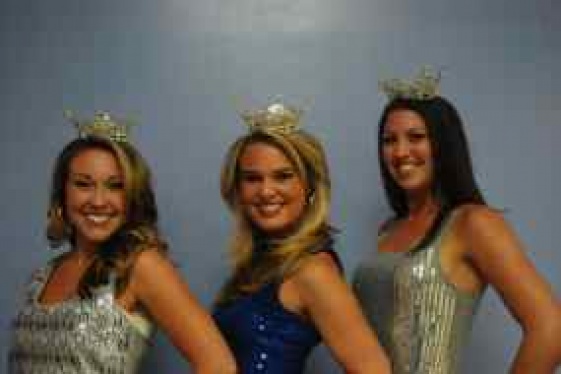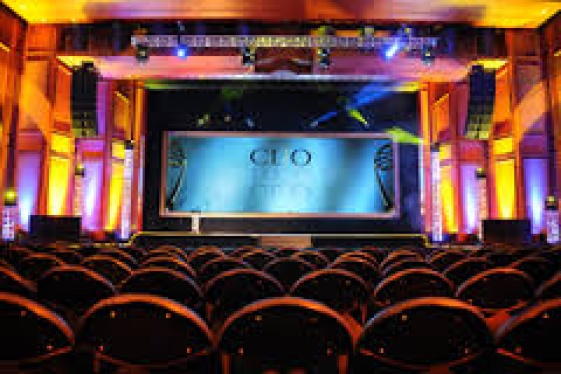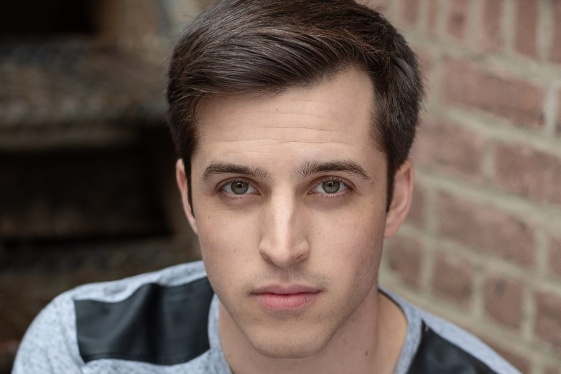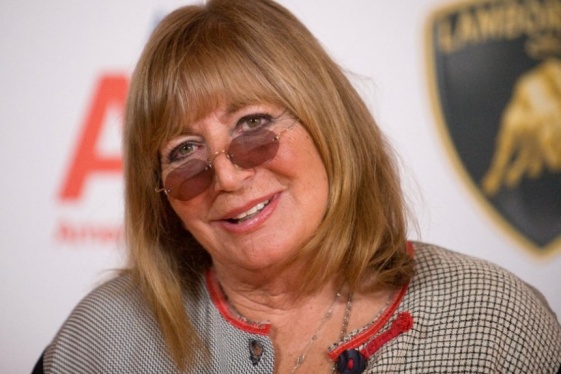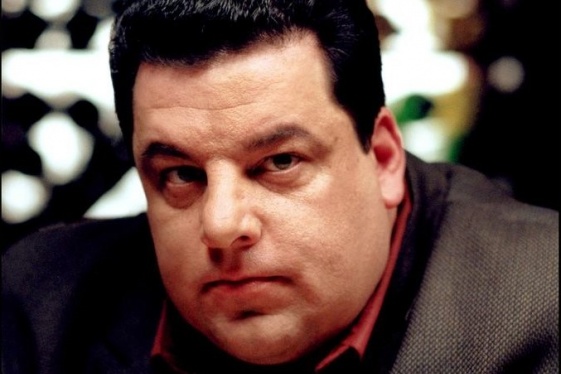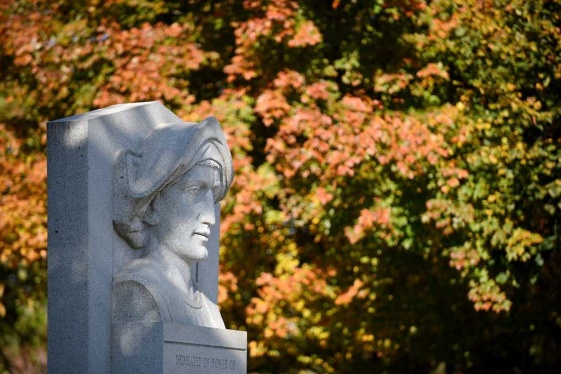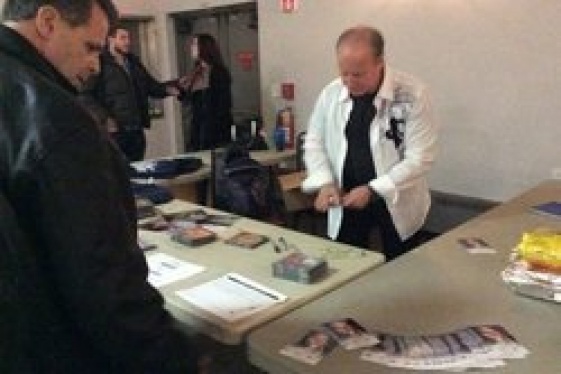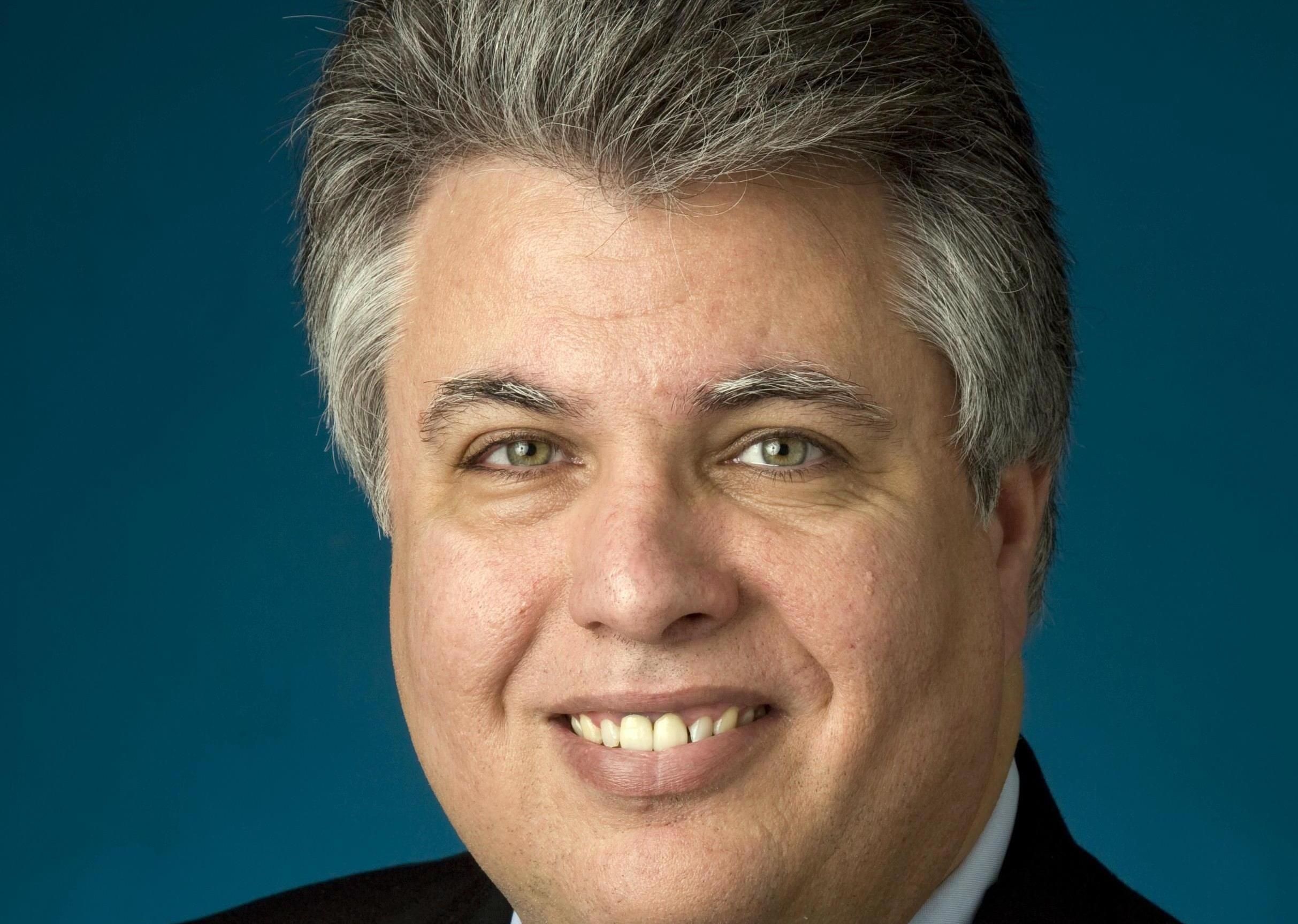
André DiMino (Executive Administrator - UNICO National)
La lotta alle discriminazioni contro gli Italoamericani

Mr. DiMino, you have recently been appointed as Executive Director of UNICO. Please tell our readers something about this important association.
UNICO is the largest Italian American service and charity organization in America. It was founded in 1922 by Dr. Anthony Vastola, a prominent surgeon in Waterbury, CT. At first he just wanted to join another service organization, but they refused him because he was Italian American: so based on that he created UNICO - to counteract the negative feelings towards Italian Americans by doing charity and community service work. At that time there were plenty of social and fraternal Italian American organizations, but there wasn’t any which was charitable and service: that’s why he decided to call it UNICO, which means unique. And this is still UNICO’s mission today, together with preserving and defending our great Italian heritage.
So UNICO is not new in fighting stereotypes against the Italians, just like the Italian American ONE VOICE Coalition has done, right?
Right. The Italian American ONE VOICE Coalition just came out from UNICO a few years ago. UNICO has a committee dedicated to anti-bias, and from the beginning has always been involved in anti-bias activity. I was National President of UNICO when Jersey Shore came out, and then I very strongly took the position against that program, and when my year of President ended – every term lasts just one year – I continued as President of ONE VOICE Coalition. Now we will continue our effort.
Italians have experienced several discriminations in the past, starting from the years of the great migration at the beginning of last century. Which are the most important stereotypes our fellow Italians have suffered for?
There are three phases to what Italian Americans and Italians have experienced here in the US as far as discrimination. The first was when the great migration happened, from the late 1800 to the first years of 1900: over 4 million Italians came, mostly from southern Italy. There was a strong negative reaction against these people: that was an age of direct discrimination regarding jobs and living conditions, and you’ll see back in the literature and movies of that time, they are depicted as very negatively, doing crime all the time, as very bad people. This goes on even after the First World War and then after the second: not as strong as at the beginning of the century, but it was still there.
The second phase starts in 1972 when The Godfather came out. I call that phase the glamorization: from that moment became very strong the idea that if you came from an Italian family, you were surely connected with crime, mob, murder, stealing, drugs and everything described in the movie and in the hundreds of films that came out after that. When I mention the glamorization of The Godfather, I mean that even some Italian Americans actually felt that it was a good thing to be portrayed this way, that it was good to be feared someway: we call those the “mob wannabees”, who actually could aspire to be one of those fictional mob characters.
The second step of phase two started in the nineties, when that stereotype about Italians in the mob were modernized: The Sopranos shows a family in New Jersey, in the suburbs, today, in the mafia. That was very damaging, especially for those who like me come from New Jersey: if you were an Italian American coming from the so called “Soprano’s state” you had to be connected to the mob, because that’s what they clearly saw every day on television.
The third big wave of discrimination was when Jersey Shore came out, creating a brand new stereotype saying that Italian Americans are dumb, uneducated, poorly acting, negative to women, through the way these people acted on the tv show. That was a new stereotype that affected above all the young Italian Americans, forever portrayed as these idiots on the program. That got us very concerned, and that’s why we acted: I was personally affected by The Godfather and then by The Sopranos stereotype, and the last I wanted to see was young hardworking Italian Americans kids and children who would now be pinned with this new dumb stereotype by the bimbos and the buffoons on Jersey Shore.
Nowadays there’s a new kind of discrimination: not only television and cinema, but also videogames and cartoons hit on the Italian Americans. Please tell our readers something about this, some examples about how the defamation keeps on going. Most of us who live in Italy cannot even imagine how many of these facts keep on happening again and again.
When you look at how many things occur, you realize that it’s a huge collection of things in the media and in entertainment and in videogames and even children’s programs that are constantly reinforcing the stereotypes about the Italian American community. It’s unbelievable: no other ethnicity has this amount of cases. Just to talk about a few examples: recently a videogame called Mafia 2 came out. Now of course, we don’t want to rewrite history: of course there was an Italian mafia. But if you play this game, you’ll see that there are over 300 criminals, and every single one of them has an Italian name: Vito, Luigi, Giuseppe and so on. And every single one of the victims has an Americanized name: Tommy, Billy, Jimmy and so on. So therefore, in the young persons’ mind, it’s just Italian Americans equal bad, hurting American people, and it’s just implanted to reach the subconscious of the children who play the game. Another example regarding children was the movie Shark Tales, a pleasant animated movie about fishes. In the movie, again, the bad sharks that tried to eat the others had Italian names. And you can go on and on with these examples: William Shatner, from Star Trek, is actually producing a new cartoon called “The Gavones” which can be found on YouTube, and this is too about an Italian family in the mob, again a cartoon, so aimed at children.
Especially after the success of Jersey Shore, there are dozens of so called “reality programs” all with the message that Italian Americans are either mobsters or bimbos and buffoons while everyone else is ok: a repetitive, constant stereotype.
You’ve been for years a champion of the antidefamation fight: if every struggle needs a face, we think that yours is the one for this battle. Which kind of actions did you take? Which successes did you achieve?
Yes, as a matter of fact I have a strong commitment about this fight. With respect of how to approach this: first of all, you have to use what they are using against us. We had to use the media, and that’s why I did my best to get our message out there loud and clear, by going to many many programs in tv and radio, by issuing press releases, by putting things on the web: to act as a balance against the negative information. But in order to get the attention of the producers of these programs, we had to do more. We tried our best to discuss this with the people at MTV, that were doing Jersey Shore: but the only time that they listened to us, was when we did a concentrated effort contacting the national companies that were advertising in that program. I personally wrote to the President of each of the 37 companies: and I am so proud to say that, not only based on my letters but also on the emails and phone calls of many others, we achieved that 11 of them wrote us committing that they no longer would advertise on Jersey Shore and that from then on they would have be more careful about the contents of the programs regarding discriminations against Italians. That was a big accomplishment, and just a few weeks later the President of MTV agreed to meet with me in New York City and that’s when we were able to present our concerns: from the second season they eliminated the reference to the word “guido” and they eliminated the showing of the Italian flag – in the first season they even had the Italian flag on the bed while some of these people were having sex on it, totally disrespectful to Italy and the Italians. So we couldn’t stop the show, but at least we stopped the worse things: but the only way to do that was to go after the money. Many people say that we should threaten to boycott the advertisers: but candidly, unless you have millions of people doing that, your threat is not real. But the key is to publicize the fact that these companies would support the negative approach towards the Italian Americans: because they don’t want that publicity.
Boardwalk Empire, The Sopranos, Jersey Shore, The Real Housewives of New Jersey … the same target, in different times and with different ways: the Italian community in New Jersey. Even Governor Chris Christie, who is of Italian heritage, is sometimes depicted with some stereotypes. You’ve been living in the Garden State since high school: please tell us something about New Jersey, and about the Italian Americans who live there.
Yes, I was actually born in Brooklyn but my family moved to New Jersey when I was six, so I spent almost my whole life here. It is a wonderful state: we have sea shores, we are big in agricultural, we have stunning gardens – that’s why it’s called the Garden State – and many other diverse beautiful things. We have many opportunities: it’s a very good place for business. There’s a large percentage of Italian Americans in New Jersey: in many towns we have a predominance of people of Italian heritage. A lot of them came to work in the several industries that were and still are in the area, while many others came here because they commuted to New York where they used to have a job. They came mainly to Jersey City and Newark, but then some of them moved to the suburbs: now the most Italian populated town of New Jersey is Hammonton, a small town. It’s true that people from New Jersey have generally an attitude of tough talking people, but of course this doesn’t involve only the Italians here: that could be also an attribute, but now with these reality shows they’re creating the stereotype that if you’re an Italian American from new Jersey then you’re boorish, you’re crude, you’re aggressive. Italian Americans in New Jersey are very successful people, proud citizens of their country, hardworking women and men, brilliant kids: that’s not the story that you see on television. Probably, this is why some of them do not object to stereotypes too much: because they have success in their jobs and lives, they want to keep it quiet and not raise a problem about it.
I’ve been stereotyped many times in my life because of this. I travel to places around the country, I am an engineer who develops medical equipment: when you go outside the Greater New York area, or let’s say far from the eastern coast, often what the people see on television is what they think is the truth about an Italian American from New Jersey. Once I was doing a demonstration among doctors, as to say very well educated people, and after it I was asked if I was connected to the mafia: one of them even asked me if I was carrying a gun!
I don’t know much about the show business and how it works, but - to increase the audience or discover a new innovative pattern – my question is: shouldn’t people be bored to watch almost the same show again and again looking at all those “realities”? Wouldn’t it be more interesting breaking the narrative and giving something new, where once in a while Italian Americans (or at least one Italian American character) are portrayed as the successful, dedicated, brilliant people they really are?
For what I know, there are two answers to your question. First of all, in the tv business nothing succeeds like success: so therefore, if Jersey Shore was popular, let’s just make another version of Jersey Shore, and another, and another. They almost look like carbon copy. Then, we’ve tried to suggest to talk about the great people in the Italian American community, or even about what Italy’s given to the world in terms of history, art and all its beautiful things and places and people. But it seems that they only want to see bad things, people who fights, controversial issues … so I don’t know, I don’t produce tv programs, I think that it’d be a great opportunity but we just don’t see it.
Has it even ever happened in the history of the American entertainment, as far as you know, to have an Italian American very good guy, if not a hero?
This question it’s exactly the same I ask my audience when I give a lecture or a presentation about these things: and nobody is ever able to answer me. The only good Italian American character I can remember in primetime television, over the past ten years, is a character played by Joe Mantegna in Joan of Arcadia: an Italian American police chief, father of Joan. But besides that, nothing. Every other ethnicity have at least ten good characters every year, but this doesn’t happen for us, and it is not by accident. Even when you have an Italian American actor who plays the main role, like Gary Sinise in CSI New York, he ends up playing … an Irish cop!
Some of the Italian Americans and some of the new Italians who live in the US would prefer not to raise the voice and bring the fight about this. They probably would prefer to just let it go. Others relate to the first amendment and think that what is said about the Italian Americans is covered by the freedom of speech. So, not everybody is comfortable with the fight you’re leading. As past president of the Italian American ONE VOICE Coalition, we have to ask you: is there the possibility to actually speak with one voice about this issue? Maybe meeting somewhere in between the two positions?
I know that we have many Italian Americans who feel that we shouldn’t be doing this. I think that if they would look at the entire list of situations and programs that denigrate Italians and Italian Americans, they might open their eyes about the huge amount of discrimination out there. They may not see every single thing that comes out, and that’s why we try to educate them: when we show them they are always surprised, because they have never seen many of the things we show them. In their daily life they may not be exposed directly to discrimination, that’s right: but there’s no way that the stereotypes that go on and on doesn’t affect at least what other people could think about them, even if they don’t feel it directly. It’s true: many times when we speak out, we hear from other Italian Americans telling us “hey don’t do that, it’s not as bad for us as it was for African Americans”. But the funny thing is that our biggest supporters are African Americans and Hispanic Americans, who agree with our position, because they have been through the discrimination and they know how negative it could be. So I will stop doing this as soon as the Italian Americans are treated like other ethnicities: but unfortunately we’re just not there. There is no political correctness when it comes to us. I absolutely believe in the right of free speech, I believe in all the rights given to us by the Constitution: that’s why it’s my right to speak out against it. For any other ethnicity in America you can’t say some words, you can’t say negative things of some kind, you can’t show stereotypes: then why is it ok doing that to the Italian Americans? Why do people regularly use the words “guido”, “greaseball”, “wop”, “guinea”? You hear them all the time in tv programs, in the news, on the radio. It’s offensive, it has to stop. And I say it not only for the Italian Americans, but I think the Italians who live in Italy, too. We’re not Italians, we’re American citizens proud of our Italian heritage, with which we feel a strong, direct connection. We’re not Italians, but we’re a part of the heritage of the great Italian people. I would be glad if this interview serves to send a message to Italians, because we feel and know that they’re our family.
You may be interested
-
A wreath for Columbus and three crowns for t...
The Columbus Day Committee of Atlantic City along with the Bonnie Blue Foundation annually...
-
In sordina, l’Italia ritorna in scena al Nat...
La presenza italiana a Natpe 2016, la principale fiera Tv per il mercato Latino Americano...
-
Sons of Italy Wine Tasting Series
Saturday, August 1 - 12.30 EDT / Valenzano Winery - 1090 Route 206, Shamong, New...
-
'A Bronx Tale, the Musical' features Sayrevil...
When “A Bronx Tale, the Musical” opens at the Axelrod Performing Arts Center in Deal on Oc...
-
'A League of Their Own' director Marshall dea...
Actress and director Penny Marshall, whose love of sports made her a regular in the Los An...
-
'All Over the World I’m Bobby Bacala. And I’m...
Every episode of The Sopranos was uniquely wonderful and horrible, at once forcing me with...
-
'Atmosphere of anger' in Glen Rock and beyond...
The debate over turning Columbus Day into Indigenous Peoples’ Day has people riled up on b...
-
'Bad boy' Mike Marino helps disabled girl, Br...
by Pamela MacKenzie He may have some irreverent slants on life and some jokes in...





